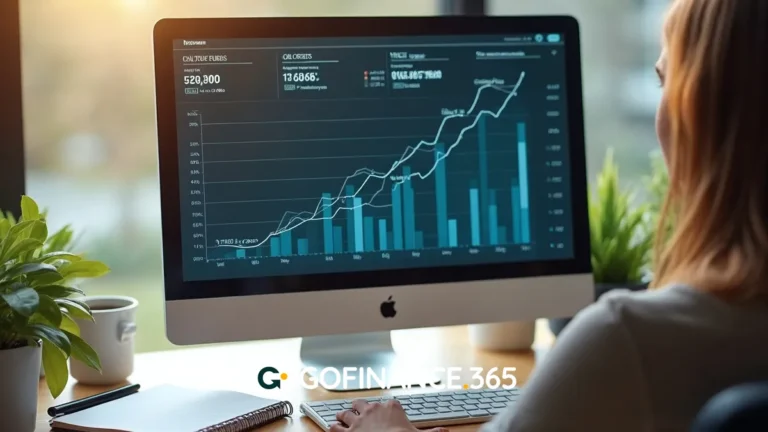Table of Contents:
Did you know that even if your salary goes up, you could end up paying more taxes without actually gaining more purchasing power? This phenomenon, known as the “hidden inflation tax,” affects millions of taxpayers around the world and intensifies during periods of high inflation.
Understanding how inflation affects your personal taxes is a key tool for protecting your pocketbook and making smart tax decisions.
In this guide, we provide a clear explanation with examples updated for 2025 that will allow you to understand precisely how this phenomenon influences your annual tax return and deductions. Let’s get started!
What is inflation and how does it affect your personal finances?
Inflation is the sustained and widespread increase in the prices of goods and services in an economy over a prolonged period. When prices rise, the real value of your money decreases, which means you can buy less with the same amount.
In personal finance, inflation acts as a silent enemy: it reduces your ability to save, increases your recurring expenses, and, in the tax arena, can push you into a higher tax bracket without you actually improving your standard of living. This effect is known as “bracket creep” and occurs when nominal wages rise due to inflation, but tax brackets are not updated at the same rate.
Immediate and long-term effects of inflation on purchasing power
- Immediate effects: increase in the cost of the basic basket of goods, higher service costs, and reduction in the savings margin.
- Long-term effects: cumulative loss of value of money, impact on pension plans, and reduction in real returns on investments.
- Fiscal impact: shift to higher income tax brackets without a real increase in net income.
In the current context of 2025, even moderate inflation of 4-5% per year can cause a significant deterioration in personal finances if there are no adjustment mechanisms in place.
Relationship between inflation and personal taxes
The connection between inflation and taxes is direct and, in many cases, detrimental to the taxpayer. When nominal incomes increase due to inflation, but tax tables and deductions are not updated at the same rate, an additional tax burden is created.
This gap causes taxpayers with the same purchasing power as in previous years to end up paying more taxes, reducing their consumption and savings capacity. In countries without automatic inflation adjustments, this distortion is particularly serious.
How inflation alters the tax base and tax calculation
The tax base is calculated on nominal income. If your salary increases by 6% due to inflation but your tax bracket threshold remains the same, you will be taxed on a higher base without earning more in real terms.
In 2025, several countries have begun to index their tax tables to annual inflation to avoid this injustice, but not all do so. In Latin America, for example, the lack of adjustment is common, which exacerbates the effect on the middle class.
Practical examples of its impact on income tax or earnings tax
Example:
- Year 2024: nominal income = €30,000, tax rate = 20%, tax = €6,000.
- Year 2025: nominal income = €31,800 (6% more due to inflation), tax rate = 22% (exceeding an unadjusted threshold), tax = €6,996.
- Result: you pay €996 more in taxes without gaining any real purchasing power.
How inflation affects tax deductions and benefits
Inflation not only influences tax brackets, it also impacts tax deductions and benefits. If the amounts of these benefits are not updated, their real value decreases year after year.
In practice, this means that a deduction that previously covered a significant portion of an expense (e.g., education or housing) now represents a much smaller fraction, reducing your tax savings.
Outdated personal deductions
Deductions for children, disability, or medical expenses lose their effectiveness when they are not adjusted for inflation. A fixed deduction of €1,200, for example, may be worth much less in real terms five years later.
Loss of tax benefits due to failure to update amounts
If a housing deduction sets a limit of €9,000 per year and the average cost of housing rises by 20% in three years, the tax benefit becomes obsolete. This discourages the use of certain programs and reduces their social impact.
Examples with deductions for housing, education, or family
- Housing: 15% deduction on a maximum of €9,000, but the average annual expenditure rises to €12,000.
- Education: deduction for school supplies of €150 per year, which does not cover even 50% of the actual expenditure.
- Family: €1,200 deduction per child, which, adjusted for cumulative inflation, should be €1,500.
Frequently asked questions about inflation and taxes
Below, we answer the most common questions about the relationship between inflation and taxation, with data updated to 2025.
How does inflation affect personal deductions?
It reduces their real value if they are not updated. In 2025, in several countries, deductions have been frozen for years, which means that they cover an increasingly smaller portion of expenses.
What happens if my salary increases only due to inflation?
You may end up in a higher tax bracket and pay more taxes without gaining purchasing power. This is called cold progression.
Does inflation always increase my taxes?
Not always. If your country indexes its tables and deductions to inflation, the impact is minimized. However, in most economies, the adjustment is not automatic.
Which countries automatically adjust for inflation?
Examples in 2025: Canada, the US, Brazil, and Mexico have implemented automatic annual adjustments. In the EU, only a few countries such as Germany and Belgium apply this mechanism systematically.















